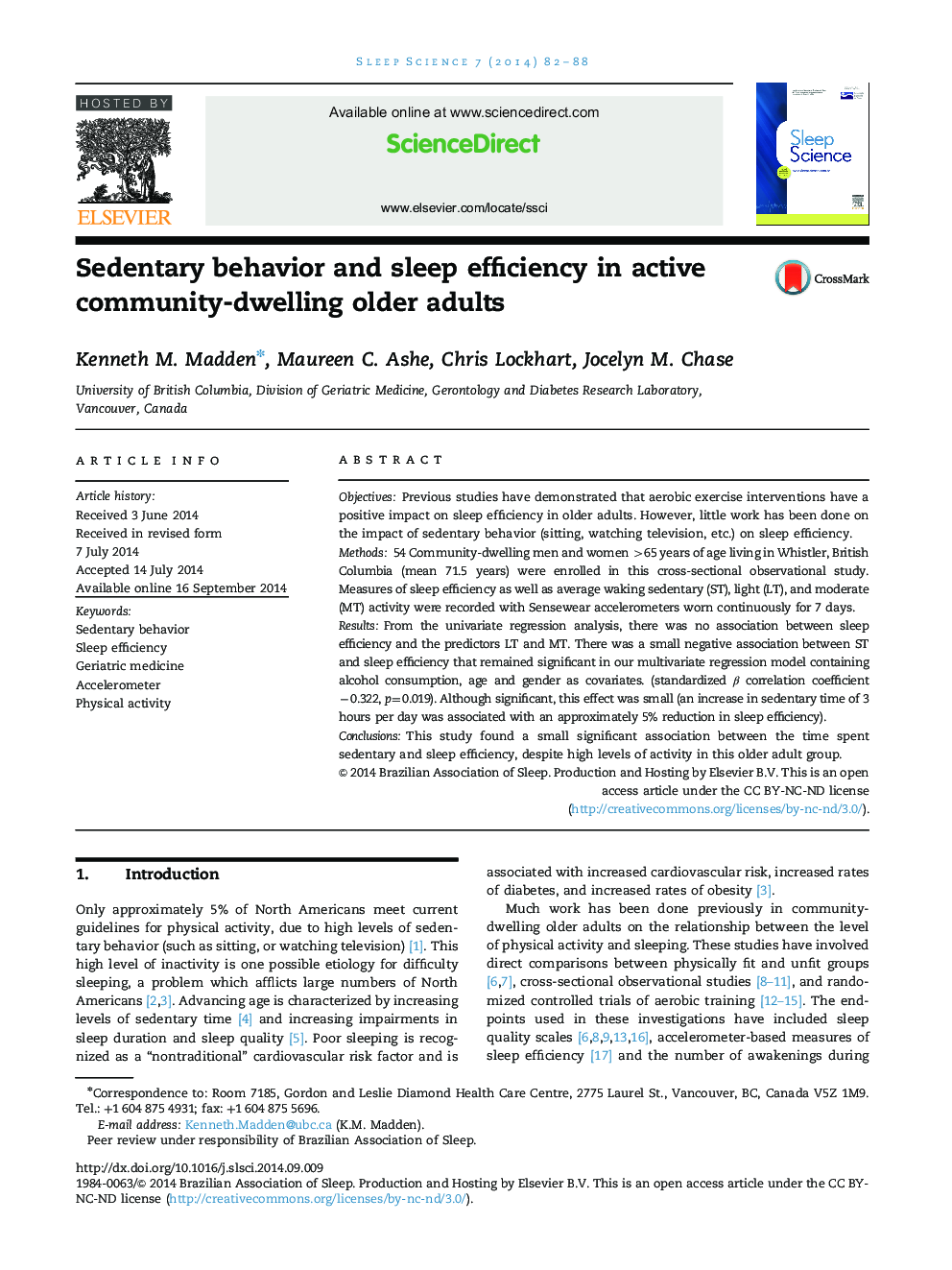| Article ID | Journal | Published Year | Pages | File Type |
|---|---|---|---|---|
| 3026631 | Sleep Science | 2014 | 7 Pages |
ObjectivesPrevious studies have demonstrated that aerobic exercise interventions have a positive impact on sleep efficiency in older adults. However, little work has been done on the impact of sedentary behavior (sitting, watching television, etc.) on sleep efficiency.Methods54 Community-dwelling men and women >65 years of age living in Whistler, British Columbia (mean 71.5 years) were enrolled in this cross-sectional observational study. Measures of sleep efficiency as well as average waking sedentary (ST), light (LT), and moderate (MT) activity were recorded with Sensewear accelerometers worn continuously for 7 days.ResultsFrom the univariate regression analysis, there was no association between sleep efficiency and the predictors LT and MT. There was a small negative association between ST and sleep efficiency that remained significant in our multivariate regression model containing alcohol consumption, age and gender as covariates. (standardized β correlation coefficient −0.322, p=0.019). Although significant, this effect was small (an increase in sedentary time of 3 hours per day was associated with an approximately 5% reduction in sleep efficiency).ConclusionsThis study found a small significant association between the time spent sedentary and sleep efficiency, despite high levels of activity in this older adult group.
